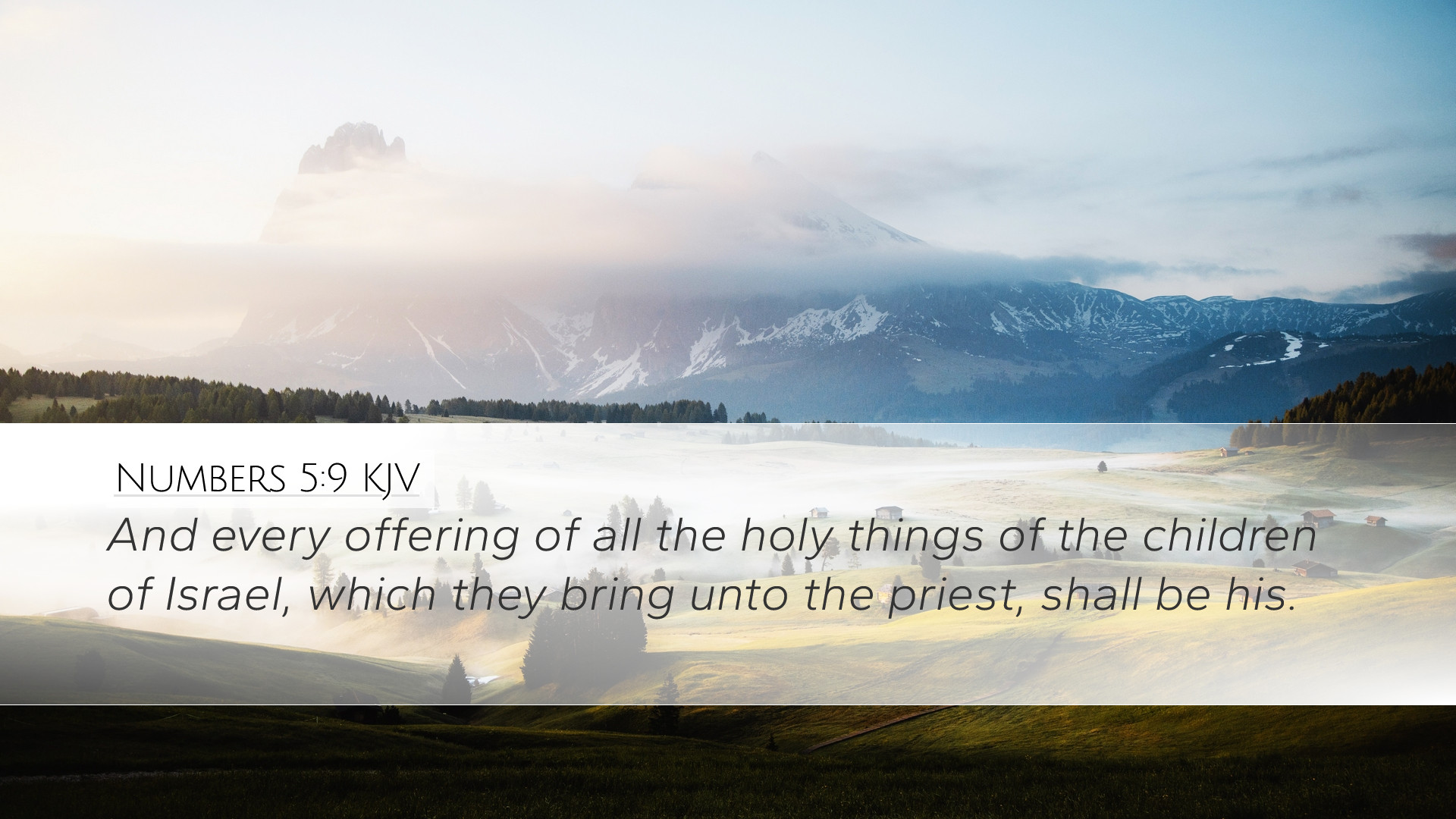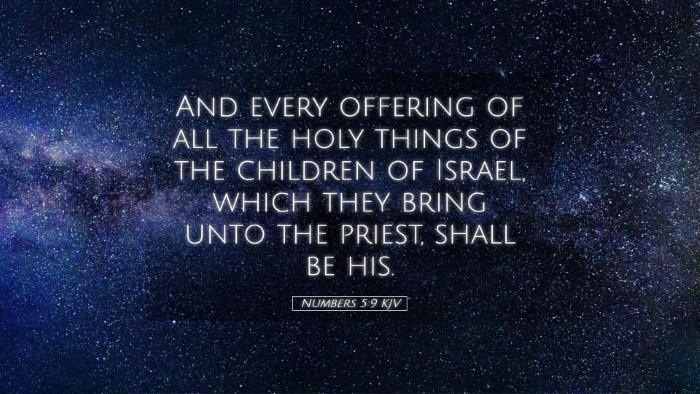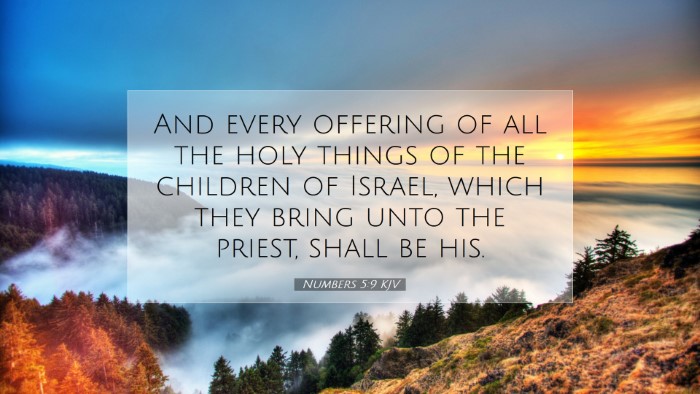Commentary on Numbers 5:9
Numbers 5:9 states, "And every offering of all the holy things of the children of Israel, which they bring unto the priest, shall be his." This verse encapsulates significant theological principles regarding offerings, priesthood, and the holiness attributed to the sacred duties of the Levitical priesthood. Below, insights from renowned public domain commentators are synthesized to provide a deeper understanding of this scripture.
The Authority of the Priest
Matthew Henry's Commentary: Henry emphasizes the role of the priest as a representative of the people before God. The offering mentioned in this verse serves as a reminder of the priest's authority in spiritual matters and his essential function in mediating between God and Israel. The offerings, being presented as holy, affirm the sanctity of worship and the necessity of approaching God with reverence.
Albert Barnes' Notes: Barnes underscores that the offerings are indicative of the people's acknowledgment of their dependence on God. He notes that the priest's right to these offerings stems from his God-given authority. The verse calls attention to the holiness of the offerings, which originate from a people's devotion, thus elevating the intention behind these acts to an essential aspect of worship.
The Holiness of Offerings
Adam Clarke’s Commentary: Clarke highlights that the offerings referred to in this verse consist of all the holy contributions made to the priesthood, emphasizing the sacred nature of these gifts. He indicates a dual significance; not only are the offerings meant for the institutions of worship, but they also symbolize the greater relationship between God, the priest, and the worshippers. The items brought forth are holy because they are set apart for God’s service.
Significance of Offering
- Spiritual Significance: Offerings represent the acknowledgment of God’s blessing and provision. They are acts of gratitude and reverence.
- Moral Responsibility: By providing for the priests, the people uphold the covenantal relationship with God that requires mutual support and care.
- Community Function: These practices bind the community together in shared worship and adherence to divine commandments.
The Role of the Community
According to Henry, the communal aspect is vital, as the entire congregation is implicated in the act of offering. When the people bring their holy things to the priest, they participate in a communal act of worship that strengthens their identity as God’s chosen people. Barnes notes that this collective act signifies the unity necessary in the community of faith, as each member contributes to the corporate worship experience.
Implications for Worship
- Unity in Worship: Worship is not merely an individual act; it is a corporate expression of faith and commitment to God.
- Shared Responsibility: Each member plays a part in the spiritual health of the community through their offerings and contributions.
- Recognition of God’s Sovereignty: Offering signifies a collective acknowledgment of God’s rightful place in their lives.
Theological Reflection
This verse invites theological reflection on the importance of holy offerings within the context of a believer’s relationship to God. Clarke reiterates that offerings are not merely transactional but also transformational, indicating the spiritual state of the giver. When believers understand that their offerings are for the priest, they acknowledge the role of spiritual leadership in guiding their faith journey.
Offerings in New Testament Context
When considering Numbers 5:9 in light of New Testament teachings, it is essential to recognize the continuity and fulfillment found in Christ. The offerings that were once made for the Levitical priesthood find a greater expression in the ultimate sacrifice of Jesus, as outlined in the epistle to the Hebrews (Hebrews 7-10). Here, believers are reminded that whereas Levitical priests received offerings, Jesus as the High Priest offers Himself as the perfect sacrifice, forever bridging the gap between God and humanity.
Practical Application for Today’s Believers
- Heart of Worship: Modern believers are called to approach giving with a heart of gratitude and reverence, similar to the children of Israel.
- Support for Ministry: There is a continued call to support our spiritual leaders and the work of the Church, understanding that this is a divine principle.
- Holiness in Offerings: Each act of giving should be an embodiment of one’s relationship with God, reflecting holiness and intentionality.
In conclusion, Numbers 5:9 serves as a profound reminder of the sanctity of offerings, the authority of the priest, and the communal nature of faith. Insights from respected commentators enrich our understanding and encourage modern believers to engage deeply with the principles of stewardship and worship. As we reflect on these truths, may we be inspired to offer not only our gifts but ourselves, wholly dedicated to God and His service.


